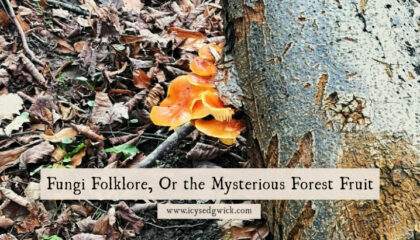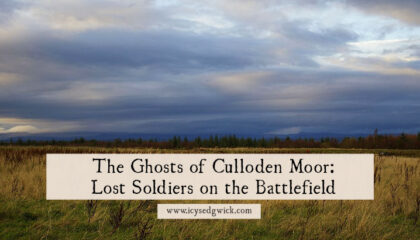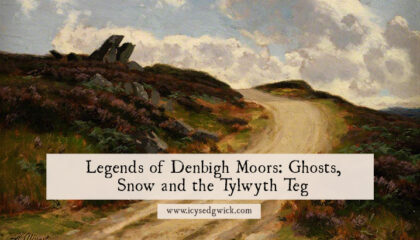Forests are ambivalent places, both beautiful and tranquil, yet also dangerous to the unwary. They’ve always been a source of resources for people, which is either embraced or exploited. As a result, there is a whole class of folklore involving forest protectors, spirits who guard the woods and all the animals within. These protectors ensure […]
Folklore
Fungi Folklore, Or the Mysterious Forest Fruit
Mushrooms have captured humanity’s attention for thousands of years. They appear in rock art, illuminated manuscripts, and more recently in plenty of 19th and early 20th century fairy illustrations. And who can forget the mushrooms in Alice in Wonderland? Fungi may have arrived on land some 700 million years ago. Scientists estimate there are anywhere […]
The Folklore of Woodland Trees: Alder, Birch & Blackthorn
Walk through any woodland in Britain and you’ll no doubt be able to pick out the forest celebrities. Think ash, oak, and pine. But a healthy forest is full of a diverse range of woodland trees, each with their own legends and folklore. They also have party tricks that see them give back to the […]
Folklore of Woodland Plants: Cowslips, Forget-Me-Nots, Lily of the Valley, Primroses & Red Campion
Certain plants evoke certain areas, like grasslands, meadows, hedgerows, or gardens. Others are full of the mystery of the forest, splashing colour across the woodland floor. Bluebells are famous for turning ordinary woods into a stunning scene in late March until early May. So in this post, we’re going to look at the folklore of […]
The Ghosts of Culloden Moor: Lost Soldiers on the Battlefield
Culloden Moor is perhaps one of the saddest sites in the British Isles, the battlefield that played host to a massacre. It was also the last battle to take place on mainland Britain. The Battle of Culloden took place on 16 April 1746. It marked the end of the Jacobite Rebellion. It’s also apparently given […]
Legends of Denbigh Moors: Ghosts, Snow and the Tylwyth Teg
The Denbigh Moors, or Mynydd Hiraethog, lie in north Wales. The area is home to two reservoirs, the Clocaenog Forest, and the Hafod Elwy Moor National Nature Reserve. At its highest point, it’s higher than Exmoor. The moors are a wild, desolate place, home to various types of wildlife. Yet if you believe the tales, […]











